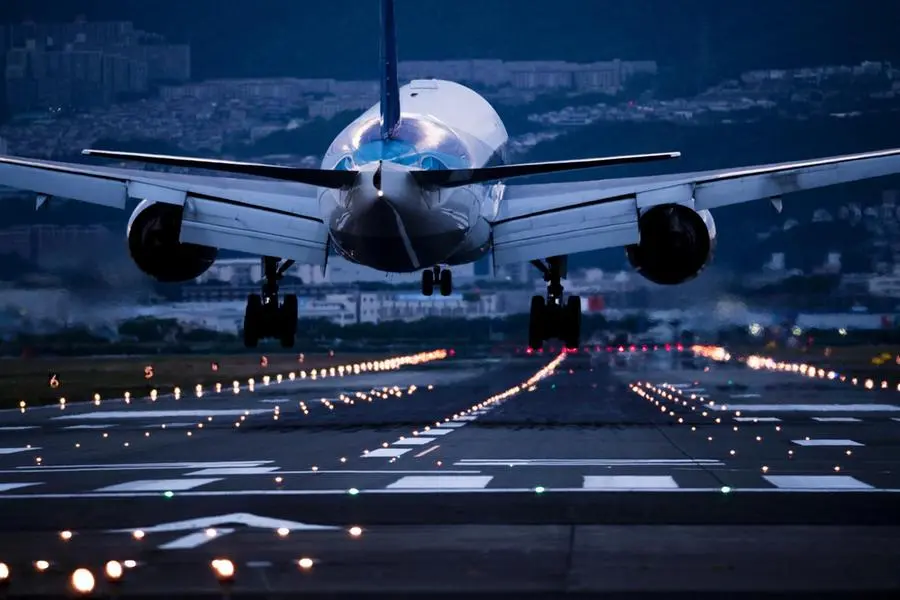PHOTO
Nigeria’s Minister of Aviation has confirmed that the African nation is committed to having an open and transparent privatised aviation industry, with an “open skies agenda” that is not controlled by the government.
Speaking at the World Government Summit 2022 held in Dubai this week, Minister Hadi Sirika told delegates that it remained a priority, with aviation becoming one of Nigeria’s fastest growing sectors prior to the COVID-19 outbreak.
“Don’t forget [that before the COVID-19 pandemic,] Nigerian aviation [had become] the fastest-growing sector of the economy. The airlines doubled, the passenger numbers doubled, [and] the number of airports doubled, all within the Buhari Administration of six years,” he said.
When pressed on the issue of government control of Nigeria Air, the country’s national carrier, scheduled to launch in 2023, Sirika responded, “100 percent private [and] 5 percent government, and no government control, no membership of board; [we are] totally committed to the private sector.
“When we [the current administration] came in 2015, we committed to a roadmap: to establish a national career, to concession the airports ... to establish cargo facilities. We’ve just been doing that, and aviation has quadrupled.”
Earlier this month, Nigeria’s Infrastructure Concession Regulatory Commission (ICRC) announced that the Ministry of Aviation had issued a Request for Proposal (RFP) for the establishment of a national carrier. The proposed shareholding structure, the ICRC confirmed, allows for a maximum of 49 percent to foreign investors, a minimum of 46 percent to Nigerian investors, and 5 percent “non-interactive shares” to be held by the government.
Asked why the Nigerian government wanted to launch a national carrier, Sirika cited the country’s “rising” middle class.
“Because Nigeria is situated at the centre of Africa, [offering an] equal distance from all locations. Africa is 30.4 million square kilometres of landmass, 1.4 billion people, [and] very green and virgin land,” he said. “If Central and West Africa is the ‘belt of Africa’, then Nigeria is the ‘buckle’, because [of] 200 million people [rising] in middle class. Nigeria is a candidate for a national carrier, 100% private.”
He continued: "[If you look at] Emirates and Qatar [Airways]... All of them are looking to go to Nigeria in multiple frequencies [to] multiple landing points, because Nigeria is the candidate; the best country to provide airline business.”
EMIRATES SUPPORT
Appearing alongside Sirika at the Summit was Sir Tim Clark, President of the UAE’s largest carrier, Emirates. He stated that there was a viable business case for Nigeria Air.
“Is there a business case for a national career, a private carrier, or whatever it may be? Of course, there is, because for the very reasons [Sirika] said, it's a powerhouse of Africa. So, there is an enormous compelling business case to do it,” Sir Clark said. “And as the minister says, we're all very interested in flying there, because it's a very rich nation in terms of the demand for services, and of course the prices people are prepared to pay. The Nigerians are seeking to travel all over the world. So, it's clear for me that that's the case.”
He continued: “If the Nigerian government needs some assistance in how they go about, perhaps a blueprint, we are very happy to help them, but I would say, not to be too disingenuous to ourselves, they are clearly understanding of what needs to be done. And they’re doing it.
“I think probably in the next year, they’ll have a very good carrier flying, and good luck to them. I hope they come to Dubai, because there’s so much demand.”
AFRICA: 2% OF GLOBAL AIR TRAFFIC
Luis Felipe de Oliveira, Director General of Airports Council International, explained that the potential for aviation in Africa was “huge”.
“Most of the airports in Africa and two-thirds of the airports in the world are in the hands of governments,” he said. “And what is especially [interesting] for Africa itself, not only for Nigeria, is that Africa has 15 percent of the global population, but only 2 percent of global air traffic. That’s why the potential is huge. That’s why we need to find a way to break the restrictions that we have to fly inside of Africa, and outside of Africa, to bring more passengers the opportunity to fly there.”
Sirika concluded: “I’d like to see that the Nigerian [aviation] industry continues to be private sector–led and –driven, and that there is more efficiency and safety in the sector. In doing that, we have added 50 million capacities to four airports recently, we’re building more runways, we’re treating the issues of ANS [Air Navigation Services]. All of those things that will make aviation smooth, efficient, safe, and the most preferred option of transportation.
(Reporting by Rachel McArthur; editing by Seban Scaria





















